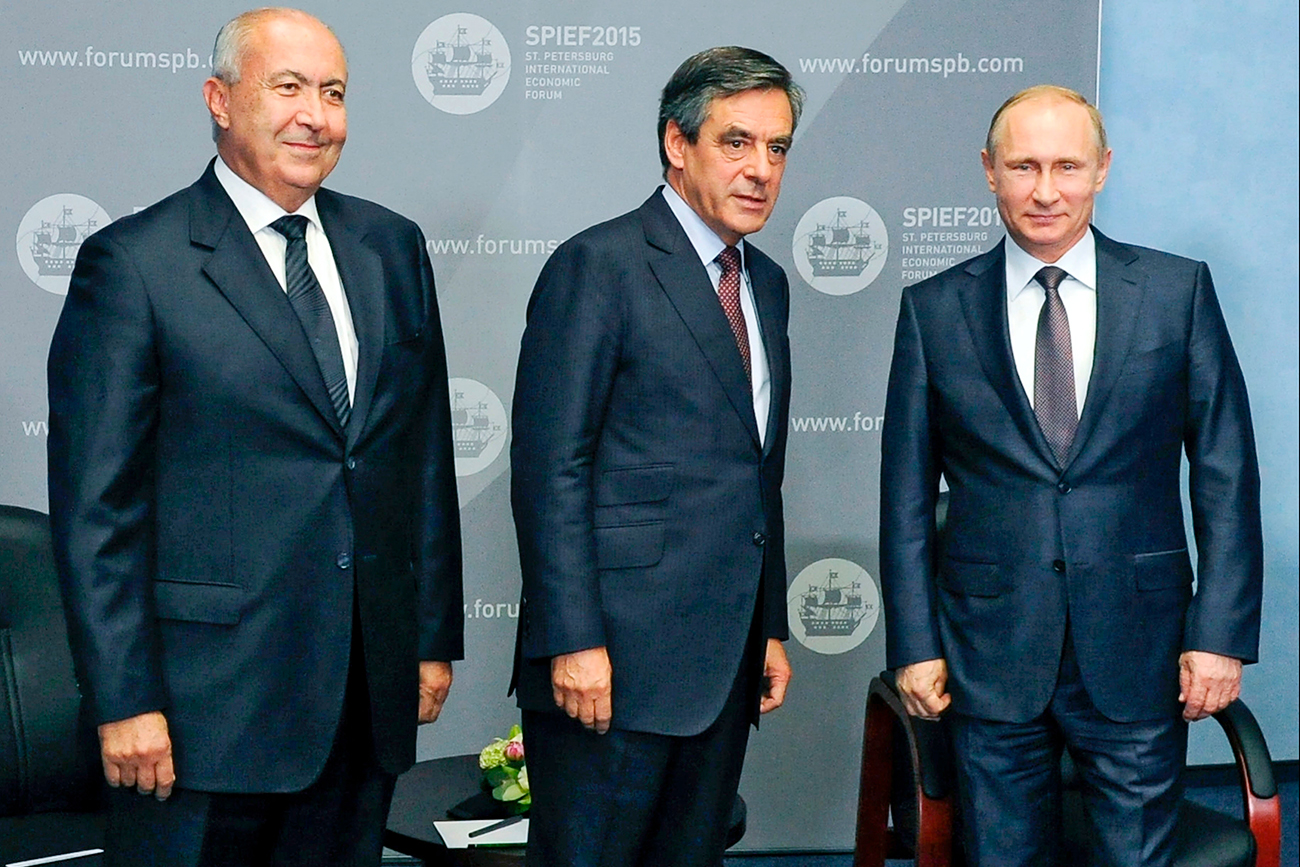
Expert: "The most influential lobbying companies would be capable of trying to fix up a meeting between their client and Vladimir Putin."
APFrench Republican Party presidential candidate François Fillon has found himself at the center of a row involving Russia. Le Canard Enchaîné on March 21 wrote that Fillon took money to allegedly set up meetings with President Vladimir Putin for Lebanese billionaire Fouad Makhzoumi and Total SA Chief Executive Officer Patrick Pouyanné.
According to the newspaper, Fillon, who was French prime minister from 2007 to 2012, was paid 50,000 euros by his "clients" for introducing them to the Russian president at the St. Petersburg Economic Forum in 2015.
The French politician said the newspaper's report is a "shameful lie," and Russian authorities are also highly skeptical of the article. Putin's press secretary, Dmitry Peskov, said the reports "seem to be fake." All of the president’s meetings with businessmen take place in line with standard protocol and there is no role for intermediaries.
The amount of money that Fillon was allegedly paid for his services as intermediary is also questionable, said Dmitry Orlov, general director of the Agency for Political and Economic Communications.
"This whole affair sounds improbable to me, above all because of the paltry sum involved. Someone able to access the Russian president would have demanded much more money for a meeting with him," said Orlov, adding that at the St. Petersburg Economic Forum businessmen can anyway freely mix with even the most senior politicians.
"You register and pay the entry fee, which was 290,000 rubles ($5,041) last year, and then you're free to mingle with anyone you want," said Orlov.
Fillon, however, could have been acting as a lobbyist, particularly since in 2015 he didn’t hold an official state post, and thus wouldn’t have been breaking the law, said Pavel Salin, director of the Center for Political Studies at the Financial University.
"Many people in the establishment, both retired and otherwise, who find themselves at a difficult moment in their careers do such things: they use their contacts to bring together person A and person B," said Salin, adding that in these situations the person whom the businessman wants to meet - in this case Putin - is unaware that money has changed hands for the meeting.
Salin believes it’s normal practice. "If the influential politician with whom the meeting is to be held, or his entourage, have not been paid for the meeting, it’s not corruption but legitimate lobbying."
The political scientist said that similar practices exist the world over and he does not understand why the Fillon-Putin case has sparked such a fuss. "I think it has to do with the fact that there’s a certain psychosis in the West at the moment whereby anything to do with Russia triggers a nervous reaction," he said.
Lobbying of this kind, whereby businessmen pay intermediaries to fix up a meeting with politicians, also exists in Russia. Local legislation does not regulate lobbying, however, and such bills periodically appear in Parliament, but fail to be passed. In any case, assistance with setting up meetings is perfectly legal.
"People involved in this are professional lobbyists: law firms and business consultants," said Pavel Tolstykh, head of the Center for the Study of the Issues of Interaction Between Business and Government, speaking on Kommersant FM radio. He added that a meeting was just the "icing on the cake" marking the conclusion of an agreement. The principal work of lobbyists is to persuade politicians to adopt a decision favorable to the businessmen - with the politicians possibly unaware that they’re dealing with lobbyists.
"Russia has no legislation governing lobbyists, so the whole matter is conducted out of sight of society," Tolstykh said. He believes the most influential lobbying companies would be capable of trying to fix up a meeting between their client and Vladimir Putin. Such a meeting could cost up to $1 million.
At the same time, the lobbyists' task is to organize the meeting in such a way as to ensure that "the president does not realize the person concerned has come to him after handing over money;" otherwise he’d probably turn down such a meeting.
Lobbyists operate cautiously and work behind the scenes, but there were times when businesses paid for contacts with the authorities rather openly, and it was more akin to real corruption than to lobbying, said Orlov.
"In the 1990s, it was reported that the price for a certain parliamentary question to be brought to the attention of state agencies was $5,000," Orlov said. "Other services also had their price: a certain price for a meeting with [President] Yeltsin, as well as for getting a federal law passed."
Orlov cautions that the rumors may not have been true, but the fact that they made the rounds is an indication of the profoundly corrupt nature of the elite at that time. Since then, however, both Russian statehood and the mechanisms of influencing the country's elites have undergone a qualitative change. They have become more civilized, said Orlov.
If using any of Russia Beyond's content, partly or in full, always provide an active hyperlink to the original material.
Subscribe
to our newsletter!
Get the week's best stories straight to your inbox